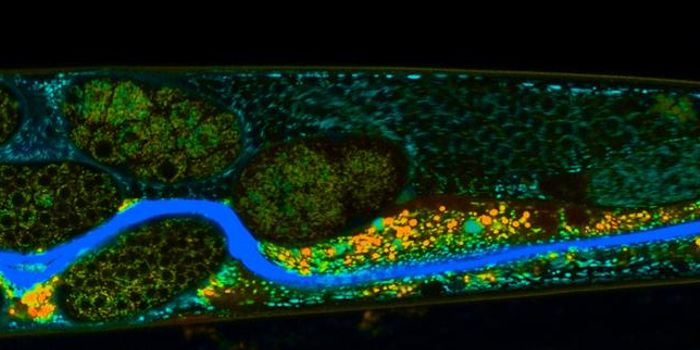Chimpanzees Use Olfaction to Discern One Ape From Another
Several mammals in the animal kingdom use olfaction as a means of identifying one individual from another. Canines are perhaps one of the most notable examples of this behavior, but despite popular belief, it seems that even some non-human primates possess an outstanding sense of smell.
Non-human primates have long been regarded as having a rather poor sense of smell, perhaps because of the lack of research concerning the matter; but an international team of researchers wanted to know more. Their curiosity led them to a study of their own, the results of which have been published this week in the journal Proceedings of the Royal Society B.
Image Credit: Stefanie Henkel
The study involved witnessing the reactions of two distinct groups of chimpanzees as researchers presented them with scent samples. Some of these samples allegedly contained traces of urine from members of the same group, while others contained traces of urine from members of the opposing group. As a control, some of the samples didn’t have a scent at all.
Related: Are chimpanzees really as strong as they're made out to be?
The chimpanzees reacted in predictable ways, spending more time sniffing the samples with traces of urine than the control samples. But perhaps more captivatingly, the chimpanzees sniffed the urine samples contracted from the opposing group longer than they did the urine samples collected from their own group.
The results suggest two significant findings: 1) that chimpanzees can discern unfamiliar scents through urine samples, and 2) that chimpanzees have a stronger sense of olfaction than we give them credit for.
"Chimpanzees are highly territorial, and encounters between groups are mostly hostile—in fact, they sometimes kill individuals from other communities—so olfactory cues might help them to locate other animals and determine whether they are group members or strangers, enhancing their survival and leading to fitness benefits," explained study lead author Stefanie Henkel from the University of Leipzig.
"Odor might be especially important because most chimpanzees live in dense forests where visibility is low, and because in chimpanzee societies, group members split up into subgroups that may not see each other for days."
Related: Do chimpanzee vocalizations have anything in common with human speech?
But that’s just the tip of the iceberg. Astoundingly, the researchers found that the chimpanzees sniffed even longer at urine samples contracted from their relatives, which suggests how they can discern family members from scent alone.
"The ability to recognize kin is crucial because it allows animals to choose appropriate partners for coalitions, avoid mating with close relatives, and avoid killing their own offspring," explained study co-author Jo Setchell. "Our results help us to understand the evolution of primate chemical communication and suggest that we should pay more attention to olfaction in apes."
Related: Video captures moments of a chimpanzee mother teaching her offspring to use tools
As it would seem, non-human primates are more skilled with their noses than we give them credit for; but more importantly, they use this skill as a means of survival and to communicate with other group members.
The study is a call for additional research on a matter that has seen very little interest in the scientific community. By learning more about these mechanisms, we could hopestart to better understand some of our closest-known relatives in the animal kingdom.









